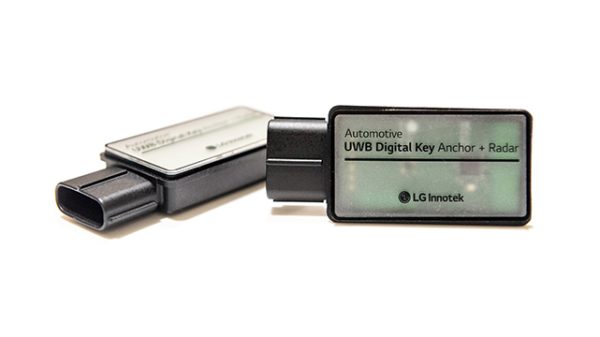IBIT: A Look Into Spot Bitcoin ETFs
Spot Bitcoin ETFs, such as BlackRock’s iShares Bitcoin Trust (IBIT) and Ark 21Shares Bitcoin ETF (ARKB), are innovative financial tools that provide investors with direct exposure to Bitcoin’s price fluctuations without the need to purchase, store, or handle the cryptocurrency directly. These exchange-traded funds use real Bitcoin to back each share, holding the actual cryptocurrency in reserve to accurately track Bitcoin’s price.
While cryptocurrency ETFs operate like conventional Exchange Traded Fund, their primary focus is on Bitcoin as the underlying value. In the US, there are currently 11 spot Bitcoin ETFs available. On January 10, 2024, the Securities and Exchange Commission approved spot Bitcoin ETFs, a big step forward for the US cryptocurrency market.
Following the approval and introduction of the spot Bitcoin ETF, daily ETF volumes have increased dramatically. In March, they approached $10 billion in daily trading volume and have been steadily trading in the billions.
For eight of the last ten trading days, flows into US spot Bitcoin ETFs have been positive. Per the preliminary results from Farside Investors, the ETFs saw an aggregate inflow of $88 million on August 20, which was the highest amount in two weeks.
August 9 and 14, just two days, saw an outflow, accounting for 80% of the previous two weeks’ Bitcoin ETFs trading. The inflow to BlackRock’s iShares Bitcoin Trust (IBIT) continues to impress. With a recent inflow of $55.4 million, IBIT has followed an upward trajectory and has now accumulated $20.5 billion in net inflows since its launch in January.
IBIT/USD 5-Day Chart
Importance of Spot Bitcoin ETFs
The emergence of Bitcoin ETFs marks a significant milestone in the financial world, bridging traditional investing with the cryptocurrency market. These innovative instruments offer numerous benefits to both institutions and individual investors. By providing a simple way to gain exposure to Bitcoin without the need to manage cryptocurrency wallets or navigate exchanges, ETFs make cryptocurrency investing more accessible. This accessibility is particularly valuable for individual investors who might otherwise find the crypto market intimidating or complex.
ETFs provide a safe, regulated way for institutions to add Bitcoin to their holdings, increasing portfolio diversification and possibly yielding higher returns. These ETFs make it easier for institutions to incorporate Bitcoin exchanges into their current investment strategies because they can be traded on conventional stock exchanges. This makes it easier for retail and institutional investors to participate in the Bitcoin market.
Institutional Investments
When investing in spot Bitcoin ETFs, institutions usually buy ETF shares through brokerage accounts and add them to their portfolios. Institutions can use ETFs to obtain a tradable, liquid asset that fits their regulatory compliance needs and investment strategies.
Institutions can benefit from the custodians who manage the Bitcoin holdings backing the ETFs. These custodians offer valuable monitoring and security measures. The approval of the ETF led to an increase in Bitcoin transaction volume. This increase was most noticeable in transfers exceeding $1 million. A significant peak in institutional volume transfers was recorded in March.
This institutional capital inflow demonstrates investors’ strong interest and points to a move toward bigger, more calculated cryptocurrency investments. Until February, transfers between $100,000 and $1 million showed the second-biggest increase. Soon after, retail and professional investors began participating in the rally.
Retail Investments
Retail investors also make spot Bitcoin ETF investments through brokerage accounts. They can buy and sell ETF stocks using limit orders or market-like trading stocks. Those used to traditional investing methods will find this process simple and familiar. Investors benefit from the reduced complexity and increased security of governed financial products and the liquidity and transparency of ETFs in retail and institutional use cases.
Challenges Faced When Trading Spot Bitcoin ETF
Spot Bitcoin ETFs are primarily exposed to the inherent volatility of Bitcoin, which can result in notable fluctuations in the ETF’s value. Investors need to be ready for sudden fluctuations in value and possible losses. ETF management also entails costs, like expense ratios, which affect total returns.
Regulatory changes may also impact the functioning and accessibility of spot Bitcoin ETFs. Furthermore, since any security lapse could erode investor confidence, dependable and secure custody solutions are crucial in sustaining innate Bitcoin holdings.
Direct Bitcoin holding may have different tax ramifications depending on the state, so investors should be aware of local tax issues.
Spot Bitcoin ETFs Keep Positive Flows For 8 Out of the Past 10 Days
IBIT has overtaken veteran Bitcoin ETF member Grayscale in assets under management (AUM). This milestone was achieved despite IBIT experiencing its only day of net outflows on May 1 since its launch in January.
Second place went to the ARKB, which saw an inflow of $51.9 million on August 20.
A net outflow of $12.8 million was recorded by the Grayscale Bitcoin Trust (GBTC), and a smaller net outflow of $6.5 million was recorded by the Bitwise Bitcoin ETF (BITB). There were no flows to the remaining funds.
Since becoming an ETF seven months ago, Grayscale’s flagship finance has lost $19.6 billion. Since its July 31 launch, its lesser fee Bitcoin Mini Trust (BTC) has only gained $288 million.
In contrast, asset classes have been outflowing from spot ether ETFs in five of the last eight trading days. According to Farside Investors, on August 20, the nine recently introduced spot Ether ETH ETFs reported a combined $6.5 million net outflow, marking their fourth day of outflows.
The $26.8 million net inflows into BlackRock’s iShares Ethereum Trust (ETHA) were insufficient to surpass the $37 million net outflow from Grayscale’s Ethereum Trust (ETHE).
IBIT Inflow: Reaction from Financial Institutions
Wall Street’s major financial institutions have recently made significant investments in spot Bitcoin ETFs, signaling growing mainstream acceptance of cryptocurrency-based financial products.
Goldman Sachs leads with $418 million in spot Bitcoin ETF holdings. The bank has invested in various funds, including GBTC, FBTC, and IBIT from Grayscale, Fidelity, and BlackRock respectively. Goldman’s largest positions are in IBIT ($238 million) and FBTC ($79.5 million). The bank has also invested in funds issued by Bitwise, WisdomTree, Invesco/Galaxy, and Ark Invest/21Shares.
Following Goldman Sachs, Morgan Stanley has also made substantial investments in Bitcoin ETFs. The company initially disclosed a $269 million investment in GBTC in the first quarter, though this holding decreased to approximately $189.7 million by the end of June. Morgan Stanley has also invested $188 million in IBIT, making it the fifth-largest shareholder of these shares. Notably, the bank has instructed its financial advisors to introduce Bitcoin ETFs to clients with over $1.5 million in assets.
Other Wall Street giants have also entered the Bitcoin ETF market, albeit with smaller investments. Bank of America holds $5.3 million in shares, primarily in IBIT and FBTC. HSBC has invested $3.6 billion in ARKB, while UBS reported about $300,000 in IBIT and other ETFs.
These investments by major financial institutions underscore the growing acceptance of Bitcoin ETFs as legitimate financial instruments, potentially paving the way for broader adoption in the traditional investment landscape.
How to Purchase Spot Bitcoin ETFs
Investors need a brokerage account to purchase ETF shares, like stocks or other ETFs. They can use market or restrict instructions with the ETF’s ticker symbol to buy spot Bitcoin ETFs. The procedure for selling shares through the brokerage firm is comparable.
Although liquidity varies based on trading market volume and the underlying asset, ETFs are typically liquid and permit trading during market hours. Brokerages include management fees and automatically subtract annual expense ratios for operating costs from transaction costs.
Due to supply and demand, the price of the ETF may differ from its Net Asset Value (NAV). However, authorised participants can issue or redeem shares to bring the ETF price closer to the NAV. The exchange’s market hours govern trading on which the ETF is listed.
Final Thoughts
In conclusion, purchasing Bitcoin ETFs like IBIT provides a long-term way to be exposed to price fluctuations without holding the cryptocurrency. Investors can profit from the growth of the total market of Bitcoin by purchasing shares of the trust. It allows them to manage the risks involved with making direct investment in the trust.
These exchange-traded funds (ETFs) could play a major role in investors’ portfolios looking for diversified exposure to Bitcoin as the financial landscape changes.
The post IBIT and the Evolution of Spot Bitcoin ETFs appeared first on FinanceBrokerage.
























